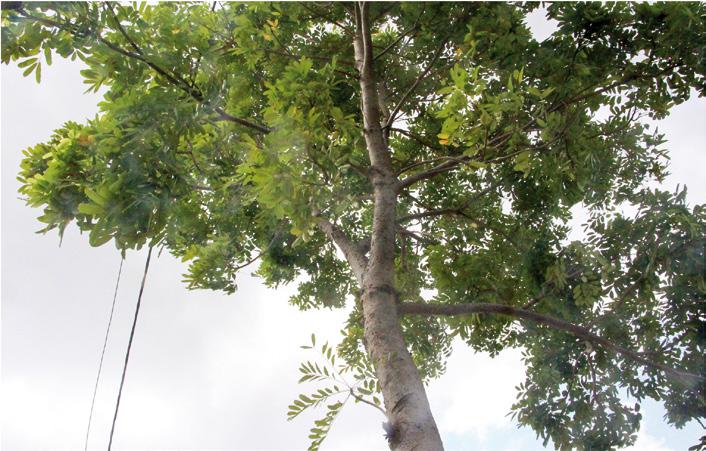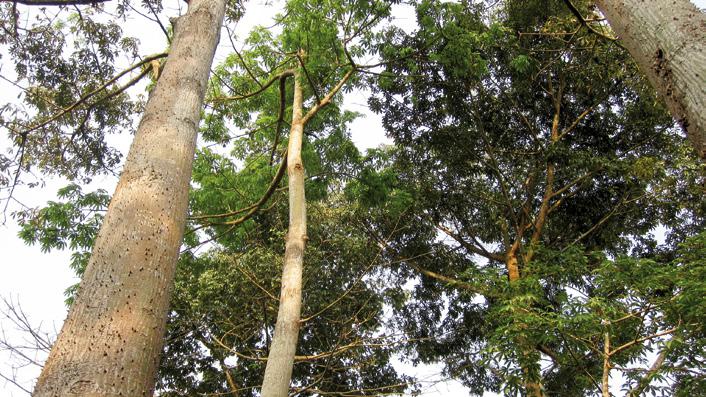Jean Didier Tèwogbadé Akpona
This project will gather key missing data on the species currently involved as well as future candidates for forest exploitation, and will evaluate performance of tree production in nurseries in order to propose new tools and guidelines for sustainable reforestation.

Khaya senegalensis tree in urban area in Benin. © J. D. T. Akpona.
Degradation of forests is now at the centre of major concerns in developing countries, including Benin where it is estimated that 70,000 hectares of natural forest are lost each year. Reforestation is used to mitigate forest degradation and has been adopted by the country for many years.

Ceiba pentandra trees in Sacred Forest of Bonou. © J. D. T. Akpona.
Plantations are often based on the use of exotic species with limited integration of local species that could contribute to biodiversity conservation. Moreover, local species that are used are chosen when they become rare. Considering that sustainability is required as the guiding principle for biological conservation, this project will mobilize stakeholders for a more sustainable model of reforestation.
This project will contribute firstly to document the current and candidate woody species involved in forest exploitation assessment. We will utilize previous studies and conduct a complementary survey among 50 stakeholders from different socio-professional groups involved in tree cutting, transformation and exportation. The survey will capitalize on their perception of tree use, threats and abundance.
Secondly, we will assess population structures of selected species. Based on the National Forest Inventory, we will select 3 occurrence areas for each species identified as a candidate for reforestation. On those sites, dendrometric parameters (dbh, tree height, seedling density, etc.) will be collected on 30 randomly selected plots of 50m x 50m to assess population structure. The abundance of a species in the sampled plots will be used as an indication of the degree of threat facing the plant.
Finally, we will conduct with communities responsible for deforestation and other stakeholders, seed germination tests of the ten most-threatened species. These germination experiments will be done in preparation for restoration with native species; establishment of an ecological monitoring system will follow the behavior of planted species in the wild during the second phase of this project.
This project will enable the conservation of biodiversity and will be the first step on improving reforestation in Benin and different partners as National Forestry Department, National Office of Woods, Forum of NGOs and nurserymen will be associated to attend this goal.